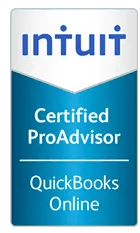Tips to Protect Your Social Security Number
Minimize the risk of having your social security number fall into the hands of the wrong person.

Very few things in life can create a higher degree of stress than having your Social Security number (SSN) stolen. This is because, unlike other forms of identification, your SSN is virtually permanent.
Here are some things that you can do to minimize the risk of having your number fall into the hands of the wrong people.
- Never carry your card. Place your SSN card in a safe place. That place is never your wallet or purse. Only take the card with you when you need it.
- Know who needs it. As identity theft continues to evolve, there are fewer who really need to know your SSN. Here is that list:
- The government. The federal and state governments use this number to keep track of your earnings for retirement benefits and to ensure you pay proper taxes.
- Your employer. The SSN is used to keep track of your wages and withholdings. It also is used to prove citizenship and to contribute to your Social Security and Medicare accounts.
- Certain financial institutions. Your SSN is used by various financial institutions to prove citizenship, open bank accounts, provide loans, establish other forms of credit, track digital payments, report your credit history or confirm your identity. In no case should you be required to confirm more than the last four digits of your number.
- Challenge all other requests. Many other vendors may ask for your SSN, but having it may not be essential. The most common requests come from health care providers and insurance companies, but requests can also come from subscription services when setting up a new account. When asked on a form for your number, leave it blank. If your supplier really needs it, they will ask you for it. This allows you to challenge their request.
- Destroy and distort documents. Shred any documents that have your number listed. When providing copies of your tax return to anyone, distort or cover your SSN. Remember, your number is printed on the top of each page of Form 1040. If the government requests your SSN on a check payment, only place the last four digits on the check, and replace the first five digits with Xs.
- Keep your scammer alert on high. Never give out any part of the number over the phone or via email. Do not even confirm your SSN to someone who happens to read it back to you on the phone. If this happens to you, file a police report and report the theft to the IRS and Federal Trade Commission.
- Proactively check for use. Periodically check your credit reports for potential use of your SSN. If suspicious activity is found, have the credit agencies place a fraud alert on your account. Remember, everyone is entitled to a free credit report once a year. You can obtain yours on the Annual Credit Report website.
Replacing a stolen SSN is not only hard to do, it can create many problems. Your best defense is to stop the theft before it happens.

















